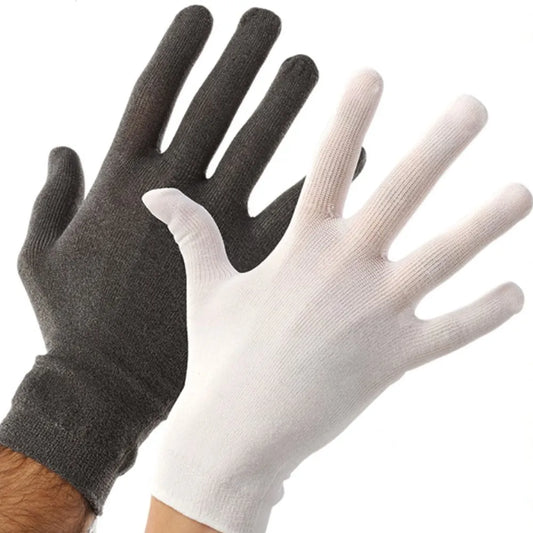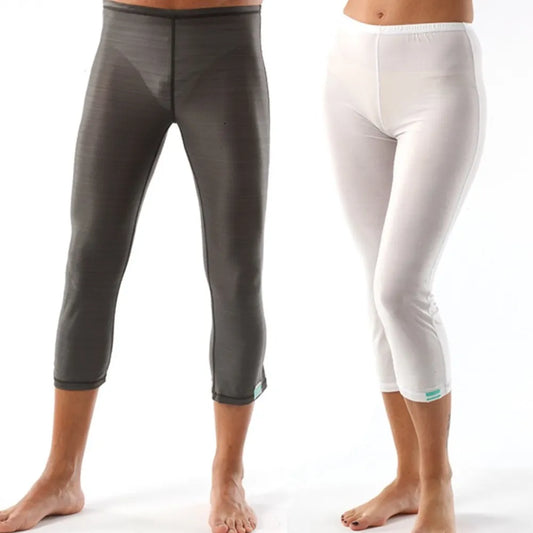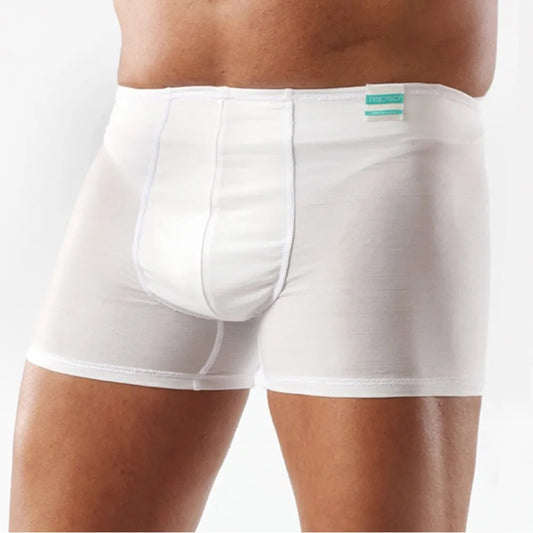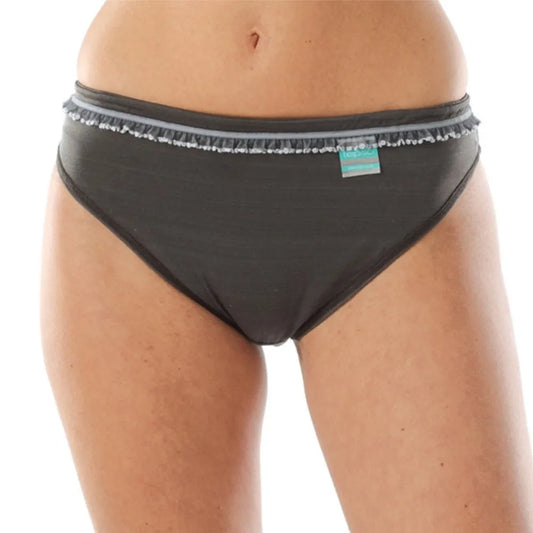Eczema and sleep
Eczema is commonly associated with both poor sleep quality and difficulty in falling asleep. Studies have found that up to 80% of children and 90% of adults with eczema also have problems with sleep1. A study by the National Eczema Association in the USA found that sleep was one of the top three most problematic symptoms of eczema. Not surprisingly sleep is especially problematic during eczema flare-ups2.Many eczema sufferers find that the eczema itch is worse in the evenings, just as we are on our way to bed - making falling asleep much more difficult. This increased itching in the evenings is thought to be due to a number of factors including: reduced oil production in the skin at night; increased blood flow increasing skin temperatures; and increased water losses through the skin in the late afternoon and evenings.
Lack of good quality sleep impacts on our ability to function effectively, our moods and our ability to get on well with the people around us. Chronic sleep deprivation can also have long term effects on our health. So what can we do to improve our sleep?
What is melatonin?
Melatonin is a hormone that occurs naturally in your body and is fundamental in controlling the body’s circadian rhythm. While the majority of melatonin is produced by the pineal gland in the brain, small amounts are also produced by our skin cells. Melatonin production is light sensitive with high light levels suppressing melatonin production.Levels of melatonin rise throughout the day, with production peaking in the small hours of the morning. Levels peak at around 10 x base level in the late evenings, helping us to fall asleep and sleep deeply at night, before falling back to base levels by the time we wake up. This helps to control both how well and when we sleep. High melatonin levels are associated with both short sleep latency (the amount of time it takes to fall asleep) and better quality sleep.
As a result melatonin supplements are commonly used to manage sleep disorders including jet lag and treat insomnia. Taken around 30-180 minutes before bedtime, these supplements boost natural melatonin levels aiding sleep.
As well as being produced within the body, melatonin is also found in a number of common foods, including dairy products and eggs. Various studies have shown that increasing dietary melatonin and tryptophan, increases the levels of melatonin measured in the body3.
Melatonin and eczema
Given melatonin’s usefulness in aiding sleep, it’s no surprise that there has been interest and research into its effectiveness in helping eczema sufferers to sleep better. In one study, researchers found that almost 78% of children with eczema had significantly disturbed melatonin production patterns. Children with mild eczema symptoms typically had higher melatonin levels and less sleep disturbance than children with moderate or severe eczema4. Researchers also found that melatonin levels were abnormally low during eczema flares5.It’s not clear how these trends are related to each other. Are the lower melatonin levels found in moderate and severe eczema sufferers a symptom of eczema? We know that small amounts of melatonin are produced by skin cells. Does active eczema disrupt this production? Or are these low levels of melatonin the result of exposure to increased light levels as a result of the management of their other eczema symptoms? A reviews of trials in the effect of light on melatonin found that exposure to room light during the usual hours of sleep suppressed melatonin by greater than 50% in most cases6. Or is it down to an external factor, such eczema sufferers commonly avoiding melatonin rich foods, like dairy and eggs.
As you would expect, melatonin supplementation in children with eczema has been investigated with the aim of improving sleep duration and quality. In a small, randomised controlled study, children with eczema received 3 mg of melatonin at bedtime for four weeks. Interestingly, by the end of the study period the children who received melatonin had both a much shorter sleep latency (falling asleep on average over 20 minutes before the placebo group) and saw a significant improvement in their eczema compared to the placebo group7. Again, the mechanism for these improvements is not clear. However the results of this study do suggest that melatonin supplementation could be useful in managing both eczema symptoms and eczema related sleep disturbance.
Can I use melatonin to manage my eczema?
As with all early scientific studies, even though the current evidence is looking hopeful, it’s best to proceed with caution.The safest place to start is to look at maximising your natural sources of melatonin. There are two ways to do this: managing light levels and increasing dietary melatonin.
Using light levels to maximise melatonin production
Melatonin production is linked to light in two separate ways. While the production of melatonin itself is linked to low light levels, it is produced using serotonin which is created in response to light. This means that for effective melatonin production, we need to get out and about in daylight hours, to ensure that serotonin levels are high, then dim the lights in the evening.Blue light has been shown to inhibit melatonin production more than other colours of light, so avoiding screens and daylight corrected lamps in the evening will be helpful. That said, all colours of light reduce melatonin production to some extent, even if your eyes are closed8. Investing in a black-out blind and turning off any night lights are simple adjustments that could make a big difference.
Melatonin (and its precursors) in food
Melatonin occurs naturally in a number of foods as does the amino acid tryptophan which the body uses, along with serotonin, to produce it. Vitamin B12 is also thought to contribute to melatonin production.Eggs, dairy products, fish, grapes, strawberries, legumes (especially bean sprouts) and wholegrains all have good levels of melatonin. Tryptophan is found in dairy products, tuna, turkey, chicken, oats, nuts and seeds. Vitamin B12 is found in dairy products, fortified cereals, eggs and fish.
You’ll have no doubt noticed that a number of these foods are also common eczema triggers. If you do need to avoid eating one or more melatonin and tryptophan rich foods, it’s definitely worthwhile making sure that you find alternative sources.
You can see that the tradition of having a glass of milk before bed, does have a rational explanation. And have you ever wondered why cheese has a reputation for giving you strange dreams? Read on to the possible side effects of melatonin supplementation for the answer.
Melatonin supplementation for eczema
Of course, you can cut to the chase and try taking melatonin supplements for a few weeks to see if they can help bring your skin back under control. In the UK, melatonin is only licensed for the treatment of jet lag so you need an off-label prescription for melatonin tablets, so you will need to talk to your GP. While melatonin is available in some UK online pharmacies for the treatment of jetlag. you will need to complete the GP approval form.Topical melatonin is available in the UK without prescription but, as these products are unregulated, they should be treated with caution.
Possible side effects of melatonin supplements
While melatonin supplementation is a long established treatment for sleep issues, it can have side effects including:- Headache
- Nausea
- Daytime drowsiness
- Dry skin/itching
- Nightmares
- Increased urination
Melatonin and sleep for eczema sufferers
While more research is needed to understand the interactions between melatonin and eczema, it does appear that supporting melatonin levels can help eczema sufferers to both sleep better and manage their other symptoms.
If you’re struggling to sleep during an eczema flare-up, it’s definitely worth talking to your doctor about the possibility of using melatonin. Just improving the quality of your sleep and reducing the time it takes to fall asleep can make all the difference to how well you are able to cope. And it may help with other eczema symptoms as well.
Our references
- https://www.ncbi.nlm.nih.gov/pmc/articles/PMC9026738/
- http://www.morethanskindeep-eczema.org/uploads/1/2/5/3/125377765/mtsd_report_-_digital_file.pdf
- https://www.ncbi.nlm.nih.gov/pmc/articles/PMC5409706
- https://www.ncbi.nlm.nih.gov/pubmed/25022734
- https://www.ncbi.nlm.nih.gov/pubmed/18078422
- https://www.ncbi.nlm.nih.gov/pmc/articles/PMC3047226/
- https://pubmed.ncbi.nlm.nih.gov/26569624/
- https://pubmed.ncbi.nlm.nih.gov/30311830/





